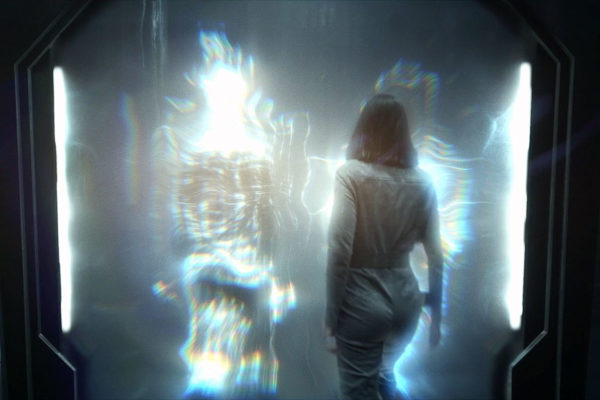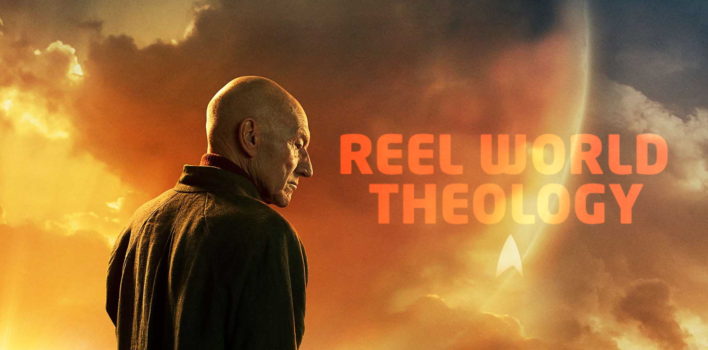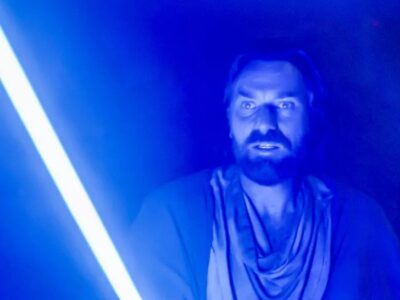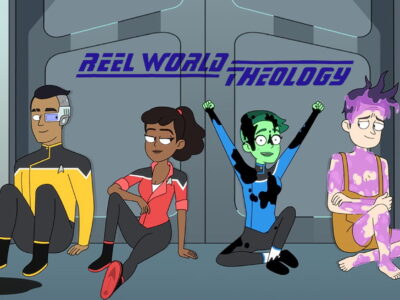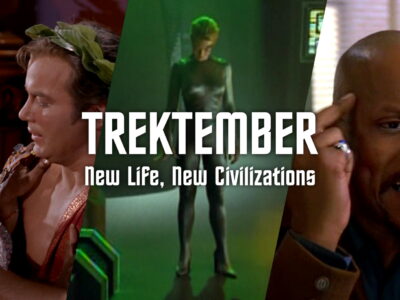“The Impossible Box” – Star Trek: Picard S1E06
Star Trek: Picard feels like a fever dream. It’s a big ball of nostalgia bouncing around a very modern sci-fi playground; a reboot of sorts that’s not quite a retcon nor a sequel. It’s Earl Grey that’s decaf now, an “engage” command given from beside the captain’s chair, and Locutus of Borg haunting a Star Trek that looks nothing like the one where he first appeared. It’s fantastic, yet problematic. After all, if anyone in this story can potentially be a synthetic life form (not just Soji, but Jurati? Maddox? Picard himself?) then we can’t really know what to trust or believe as a viewer.
While it’s doubtful that what we’re seeing is all some sort of holodeck-like illusion, the question of whether everything is real is pervasive. It’s an almost meta way of serving the story, even if it’s unreliable. There is an ongoing tension between honesty and deception in the story. We’ve seen the Qowat Milat way of absolute candor and the completely fabricated lives of Dahj and Soji. We’ve seen Picard calling Starfleet out on its failures while the Zhat Vash have secretly infiltrated the organization. All this is against the backdrop of mystery shrouding the journey of the series: even our characters don’t know what to believe.
The Secrets That We Keep
Everyone is hiding something, whether they know it or not.
—Narek
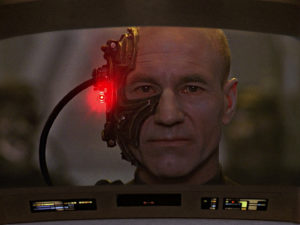 I remember watching, captivated, Picard’s last visit to a Borg ship. “It wasn’t voluntary,” he said. That’s an understatement. It was a turning point not only for a sci-fi TV series, but sci-fi as a whole: the mighty captain of a starship, your lead character and hero, turned into a bad guy against his will? It bent the storytelling expectations of the day in a way that allowed future sci-fi writers freedom to do the same. So, while it’s a bit of a mind trip to see the elder Jean-Luc once again strolling the dark metallic corridors of a cold Borg ship (for both he and the audience), it’s the very thing that will help save Soji.
I remember watching, captivated, Picard’s last visit to a Borg ship. “It wasn’t voluntary,” he said. That’s an understatement. It was a turning point not only for a sci-fi TV series, but sci-fi as a whole: the mighty captain of a starship, your lead character and hero, turned into a bad guy against his will? It bent the storytelling expectations of the day in a way that allowed future sci-fi writers freedom to do the same. So, while it’s a bit of a mind trip to see the elder Jean-Luc once again strolling the dark metallic corridors of a cold Borg ship (for both he and the audience), it’s the very thing that will help save Soji.
We see Agnes Jurati coldly explain to Elnor what happened to Picard on that Borg ship nearly three decades ago. When a traumatic experience you’ve survived becomes required reading in a textbook, it’s not like you can keep it a secret. As much as he would like to hide his trauma from the world, even ex-Borg who have never met him in person know it’s Locutus walking by them in The Artifact. But Picard facing his trauma and failures is why he is now on this journey: it’s what has led him to Soji, and what will ultimately lead them both towards healing.
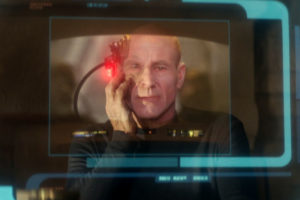 Narek isn’t totally wrong, sinister though he may be. We do all have things we hide from others for a variety of reasons. But when it comes to pain, the only way forward is sharing it. Raffi begins to make progress out of her drunken binder by opening up to Rios and joining her crew to help them with their mission. Soji is saved from potential death by Picard stepping into his pain, leaning on friends like Hugh and facing whatever lies ahead. It provides a great example for why Christians are called towards community.
Narek isn’t totally wrong, sinister though he may be. We do all have things we hide from others for a variety of reasons. But when it comes to pain, the only way forward is sharing it. Raffi begins to make progress out of her drunken binder by opening up to Rios and joining her crew to help them with their mission. Soji is saved from potential death by Picard stepping into his pain, leaning on friends like Hugh and facing whatever lies ahead. It provides a great example for why Christians are called towards community.
What Not to do in Christian Community
Please trust me. Please.
—Picard, to Soji
I could quote a dozen verses that emphasize the importance of community in scripture. It’s inherent to the gospel, it’s how we grow, it’s how we heal. Yet my experience with Christian community has often been quite different: with the exception of several (truly wonderful) times, I’ve found that most Christian community doesn’t model the call throughout scripture. On a macro level I’ve seen the body of Christ suffering with fellow suffering parts (1 Corinthians 12), promoting good works in each other (Hebrews 10) and carrying one another’s burdens (Galatians 6), but I’ve so often found it missing on a micro level.
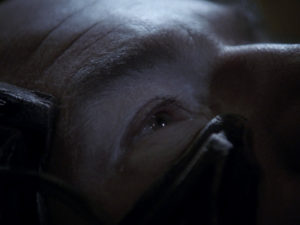 I am just as guilty of contributing to this as the next person, but I’ve also been the recipient of it. And from my experience, it is when we draw inward and get too comfortable in our daily lives that we miss the little moments to really connect. Sure, we may shake a hand or two at church, end a casual conversation with “we should hang out sometime,” or even throw out the much-maligned “I’ll pray for you,” but these things tend to be dismissive. It is vital to the kingdom, to our world, and to the person sitting next to us that we don’t do that. Instead, we must actually extend our hand and give of ourselves when it is taken.
I am just as guilty of contributing to this as the next person, but I’ve also been the recipient of it. And from my experience, it is when we draw inward and get too comfortable in our daily lives that we miss the little moments to really connect. Sure, we may shake a hand or two at church, end a casual conversation with “we should hang out sometime,” or even throw out the much-maligned “I’ll pray for you,” but these things tend to be dismissive. It is vital to the kingdom, to our world, and to the person sitting next to us that we don’t do that. Instead, we must actually extend our hand and give of ourselves when it is taken.
The moment when Picard looks at Soji and begs her to trust him is a beautiful reflection of this. His wading into help her in the midst of real danger to himself is a powerful illustration of what it takes to live in a real, gospel-centered community. I’m not saying we should all go charging into a fire fight with a bunch of menacing Romulans, but I am saying quit talking about it and actually do it. It’s not always easy or comfortable, and it may take patience. But don’t ignore it.
One of my favorite things about this series is Hugh and the Borg Reclamation Project. Not only is it a fascinating new way to explore the Borg in the franchise, but it’s a beautiful example of spiritual patience. Picard was a Borg for maybe a few days and he’s still dealing with the effects late in his life. Can you imagine how much patience it would take to rehabilitate someone who had been assimilated for years? Probably as much patience as God has with us. Which is to say, infinite.
If the universe is going to be saved from Soji the destroyer, it will be because of Picard’s patience and willingness to wade into her pain. I’ve had many moments in my life where I’ve needed someone in my community to wade into my struggles with me, and I know there have been others who needed the same from me. I often wonder about the missed opportunities. What happens if we actually answer our calling to community? From the looks of it, the crew of the La Sirena may very well provide an answer for us this season.
